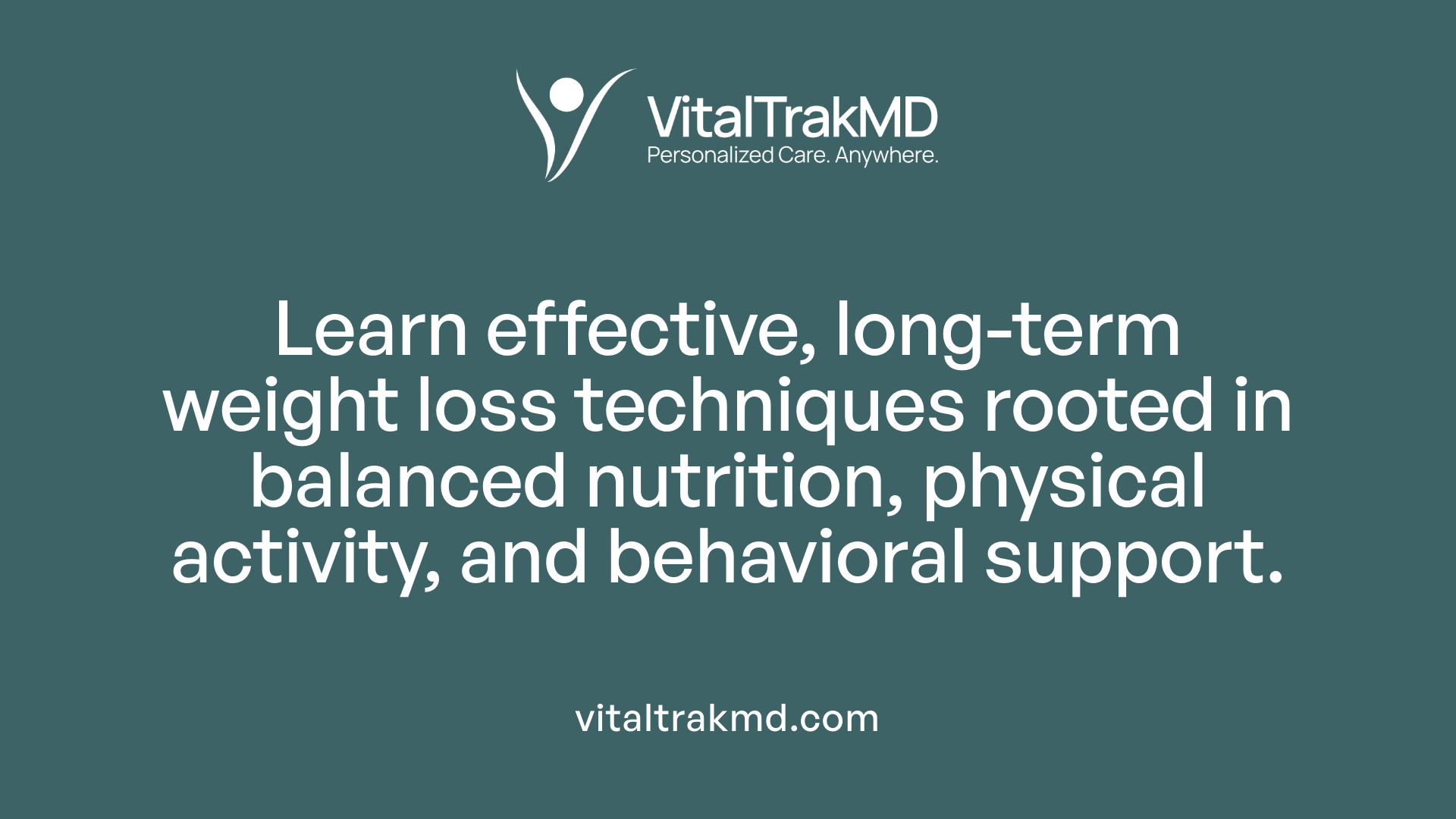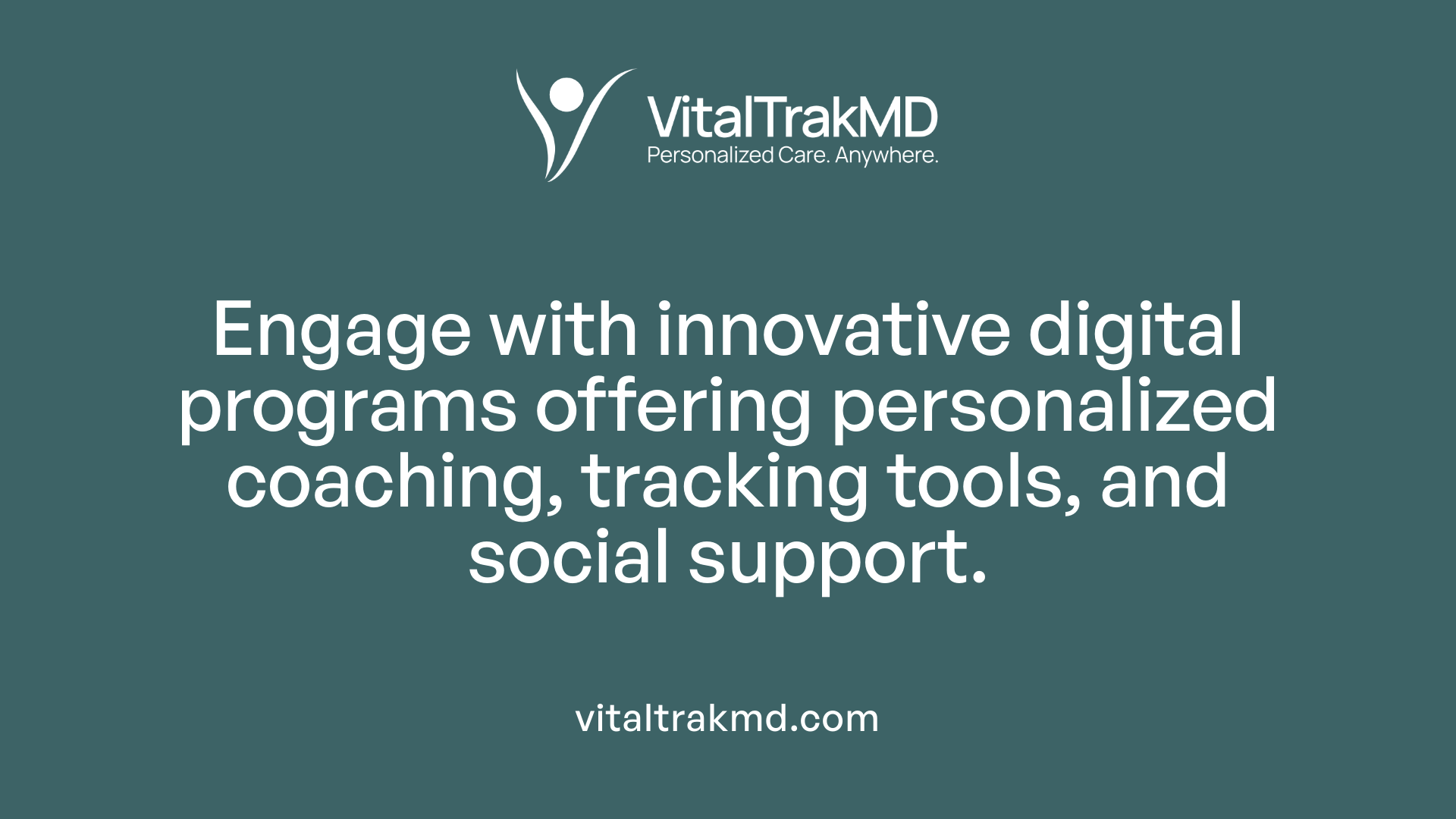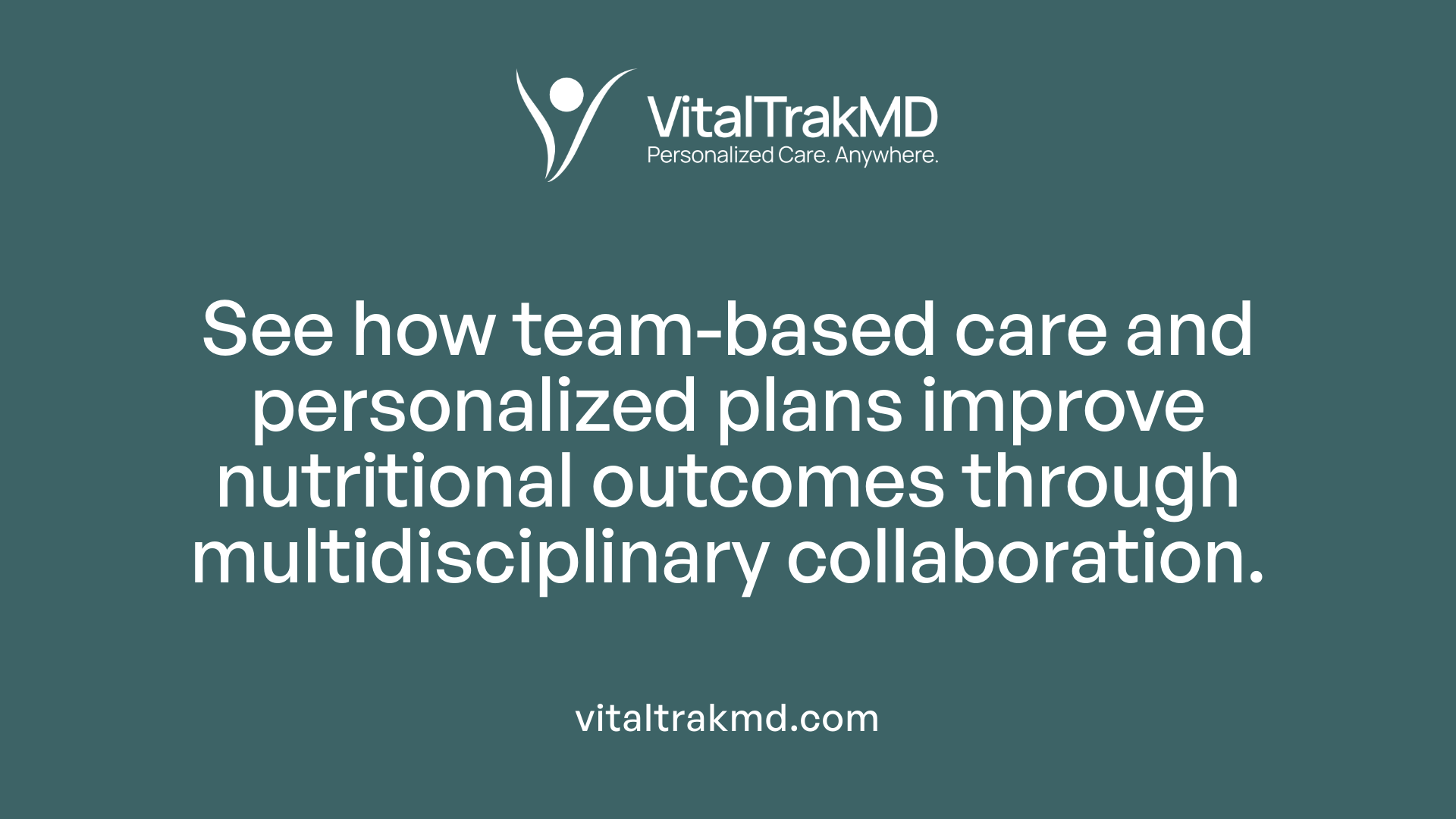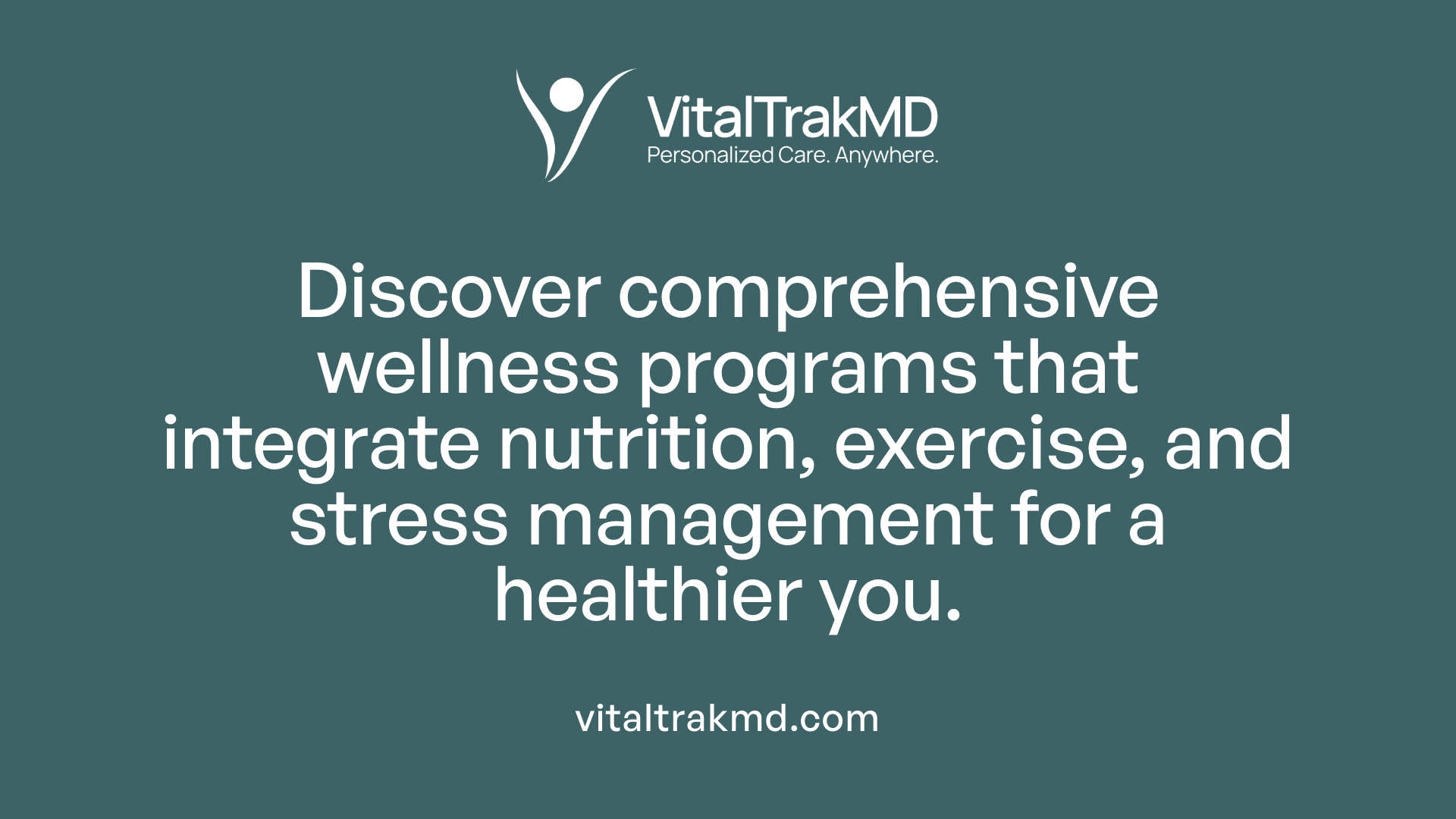How Hybrid Healthcare Helps Patients Maintain Balanced Nutrition Plans

The Evolution of Patient Nutrition Management
Maintaining balanced nutrition plans is a cornerstone of long-term health and wellness. Today, hybrid healthcare models that blend digital interventions with personalized professional support are revolutionizing how patients adopt and sustain healthier dietary habits. This article explores how hybrid healthcare helps patients maintain balanced nutrition plans through evidence-based programs, multidisciplinary care teams, and innovative digital tools that foster adherence, engagement, and lasting behavior change.
Key Components of Effective Wellness Programs in Nutrition Management
What Are the Key Components of Effective Wellness Programs?
Effective wellness programs are multifaceted and aim to promote sustainable lifestyle changes that lead to improved health outcomes. Core components include nutrition education, which focuses on guiding participants toward healthier food choices and balanced diets. Exercise promotion encourages regular physical activity to complement dietary changes.
Health risk assessments and biometric screenings help identify individual health needs and track progress. Stress reduction strategies, such as mindfulness and behavioral support, are integrated to address psychological factors impacting health.
How Do Digital Tools Enhance Engagement?
Digital platforms, including wellness apps and web portals, play a crucial role in engagement. They provide personalized feedback, track nutrition and exercise, and facilitate social support via online communities. These tools can simplify participation and improve adherence to program goals.
Why Is Legal Compliance Important?
Wellness programs must comply with legal requirements such as the ADA, GINA, HIPAA, and the ACA to protect participant confidentiality and rights. Adhering to these laws ensures ethical program implementation and builds participant trust.
How Is Program Success Measured?
Evaluation metrics include participation rates, improvements in biometric markers (such as blood pressure and cholesterol), behavioral changes, and employee satisfaction surveys. Continuous evaluation helps refine program components to maximize effectiveness.
How Is Participant Engagement Supported?
Strong management support, clear communication, and accessible program resources foster higher engagement. Offering group sessions, coaching, and diverse program formats accommodates varying participant needs.
What Is the Overall Purpose?
Ultimately, these wellness programs strive to promote healthier lifestyle choices, reduce cardiovascular and metabolic risk factors, and empower individuals to maintain long-term health improvements, resulting in healthier communities and workplaces.
The Role of Care Programs in Supporting Long-Term Nutritional Outcomes
How do care programs contribute to long-term health improvements?
Care programs play a critical role in promoting sustained health benefits by delivering comprehensive access to healthcare and focusing on prevention. For instance, Medicaid managed care programs enhance access to preventive services, which helps reduce hospitalizations and supports better management of chronic diseases such as diabetes and cardiovascular conditions.
Comprehensive Access and Preventive Care
By providing a wide range of services, including preventive care, care programs facilitate early intervention and support consistent nutritional management. This proactive approach enables better control of health conditions and lowers the risk of complications.
Managing Chronic Conditions Effectively
Care programs also offer assistance for long-term services and supports (LTSS), catering to individuals with disabilities, chronic illnesses, or age-related challenges. LTSS help with daily tasks, supporting independent living and improving quality of life, which indirectly enhances nutritional outcomes by enabling clients to maintain healthier routines.
Addressing Social Determinants of Health
Social determinants—such as housing, food security, and social support—are critical in shaping nutrition and health. Care programs that coordinate health services with social interventions can address these factors, improving overall well-being and reducing health disparities.
Coordinated Care and Workforce Challenges
While coordinated care models improve service delivery and patient outcomes, challenges remain. These include workforce shortages, limited service capacity, and disparities in care quality, which can hinder optimal long-term nutritional support. Effective management and resource investment are essential to overcoming these barriers.
| Aspect | Contribution to Long-Term Nutrition | Details and Challenges |
|---|---|---|
| Comprehensive Access | Increases availability of preventive & chronic care | Enables early nutritional interventions |
| Preventive Care Focus | Reduces disease burden | Improves adherence to healthy lifestyle |
| Chronic Condition Management | Supports LTSS and daily living activities | Promotes independence and healthier routines |
| Social Determinants of Health | Addresses non-medical factors influencing nutrition | Requires integration of social services |
| Care Coordination | Enhances continuity and efficiency of care | Dependent on workforce and infrastructure |
| Workforce and Service Challenges | Limits capacity and quality of service delivery | Requires strategic planning and resource allocation |
Successful Strategies for Sustainable Weight Loss and Nutritional Balance

What strategies are most successful for sustainable weight loss?
Sustainable weight loss is best achieved through gradual lifestyle changes rather than quick-fix approaches. Combining a balanced diet rich in fruits, vegetables, whole grains, and healthy fats with regular physical activity creates a foundation for lasting health benefits.
The Mediterranean diet is widely recognized for promoting heart health and weight management. It emphasizes plant-based foods, healthy fats like olive oil, lean proteins, and moderate consumption of dairy and wine. Other diets such as the DASH diet and plant-based eating patterns also support weight loss and reduce chronic disease risks.
Physical activity plays a critical role. Adults are encouraged to aim for about 150 minutes of moderate exercise per week, which can be broken down into manageable sessions like brisk walking or cycling. This not only boosts calorie burn but also improves cardiovascular health and mood.
Goal setting and progress tracking are vital to maintain motivation. Tools like food journals, digital trackers, and regular weigh-ins can provide clear feedback and encourage adherence. Social support through group sessions, coaching, or community involvement strengthens commitment and resilience.
Stress management and sufficient sleep are important behavioral targets. Poor sleep and high stress can negatively affect metabolism and hunger hormones, undermining weight control efforts.
Avoiding restrictive or fad diets helps prevent nutrient deficiencies and unsustainable habits. Instead, focusing on balanced, enjoyable eating patterns is key to long-term success.
By integrating these components—balanced nutrition, consistent physical activity, behavior modification, and social encouragement—individuals can achieve healthy weight loss that lasts and supports overall wellbeing.
Digital Weight Management Programs: Blending Technology and Personalization

What are the key components of effective wellness programs?
Effective wellness programs rely on a blend of technology and personalized support that drive meaningful behavior changes in nutrition, fitness, and overall health. Programs like Real Appeal stand out by integrating various elements that help users stay motivated and on track.
Real Appeal program overview
Real Appeal is a comprehensive weight management program available at no extra cost to qualifying UnitedHealthcare members. It combines nutrition, exercise, sleep, and stress management guidance to support a healthier lifestyle with pragmatic, achievable steps.
Digital coaching and group support
Participants receive personalized coaching through online sessions and benefit from interactive group meetings. These components foster social support and accountability, factors shown to improve adherence and outcomes beyond standalone automated systems.
Success Kit tools for tracking
Program members are equipped with a Success Kit including a body weight scale, electronic food scale, and a balanced portion plate. These tools facilitate accurate self-monitoring of food intake and weight changes, crucial for staying engaged and making informed choices.
Science-backed practical steps
Real Appeal's approach emphasizes simple, science-backed methods such as setting realistic goals and progressively incorporating healthier habits. This stepwise plan enhances long-term success by focusing on sustainable behavior changes rather than rapid, unsustainable weight loss.
Importance of human feedback
Evidence suggests that weight management programs incorporating human contact or personalized professional feedback outperform fully automated digital systems. The inclusion of coaches and group interaction in Real Appeal aligns with this insight, maximizing participant motivation and results.
Multi-modal intervention delivery
The combination of digital tools, personalized content, human coaching, and peer support illustrates an effective multi-modal intervention delivery. This variety addresses different learning styles and challenges, delivering a more comprehensive and engaging user experience.
Privacy and data security in eHealth programs
Real Appeal enrollment is streamlined through the UnitedHealthcare member site with no data security concerns, ensuring members can safely access the program. Compliance with privacy standards is vital for fostering user trust in digital health interventions.
In summary, effective digital weight management programs like Real Appeal blend personalized coaching, supportive group dynamics, practical tracking tools, and science-based strategies within a secure digital environment to motivate and empower users on their wellness journeys.
Multidisciplinary Clinical Approaches Enhancing Nutritional Interventions

UCLA Medical Weight Management Program model
The UCLA Medical Weight Management Program represents a comprehensive multidisciplinary approach to weight loss and nutritional therapy. Established for over 45 years, it integrates research and clinical practice focused on effective obesity treatment, including pioneering studies on very low-calorie diets (VLCDs).
Team-based care with physicians and dietitians
This program employs a collaborative team of healthcare professionals—physicians, nurse practitioners, registered dietitians, psychologists, and therapists. Such team-based care ensures all aspects of a patient's health are addressed, from medical issues to behavioral support.
Personalized nutrition therapy including protein intake
A hallmark of the program is personalized nutrition therapy. Protein intake is specifically tailored to each patient’s needs to manage hunger effectively and help preserve lean muscle mass during weight loss, which supports metabolic health and sustainable results.
Comprehensive assessments and tailored diets
Patients undergo thorough initial assessments, including physical measurements, blood testing, and a detailed health history review. These data guide dietitians in creating customized dietary plans. The program offers various diet categories: very low-calorie (VLCD), moderately low-calorie (MVLCD), low-calorie (LCD), and maintenance diets, often incorporating meal replacements for flexibility and compliance.
Behavioral cognitive therapy integration
Behavioral changes are supported through group cognitive behavioral therapy classes, which have been adapted to virtual delivery via Zoom. These sessions focus on modifying habits and psychological factors that affect eating and lifestyle choices, enhancing the likelihood of long-term success.
Medical supervision of very low-calorie diets
When VLCDs are prescribed, medical supervision is critical. Physician and dietitian involvement varies depending on the diet’s intensity to ensure safety and effectiveness, minimizing risks associated with rapid weight loss.
Emphasis on weight loss maintenance
The program stresses not only achieving weight loss but also maintaining it. Strategies are focused on preventing weight regain through continued behavioral support, lifestyle coaching, and nutrition guidance to sustain healthy habits long-term.
Holistic Lifestyle Programs Supporting Balanced Nutrition and Wellness

What is the MyWay to Health Program?
MyWay to Health is a comprehensive health and wellness program grounded in scientific evidence, expert opinion, and over 25 years of research. It guides individuals toward improving overall health through balanced nutrition, increased physical activity, better sleep, and effective stress management.
How does the program focus on nutrition, physical activity, sleep, and stress?
The program offers holistic advice to cultivate sustainable and balanced lifestyle habits. Participants learn how to enhance the nutritional quality of their diet, integrate regular physical activity, develop sound sleep routines, and manage stress effectively—all contributing to improved well-being.
What kind of professional support is provided?
Enrollees receive personalized support from registered dietitians and other health professionals. This team works closely with individuals through consultations to tailor recommendations for nutritional intake, activity levels, and behavioral modifications.
What activities and services are included?
MyWay to Health provides workshops and one-on-one personalized consultations, addressing nutrition education and individualized health goals. It also encompasses programs for weight management and smoking cessation, ensuring a broad approach to wellness.
How are privacy and confidentiality handled?
The program strictly adheres to federal privacy regulations, ensuring that all personal health information is securely managed. Participants can engage with the program confidently, knowing their data is protected and confidential.
Evidence-Based Diets and Their Role in Chronic Disease Prevention and Nutrition Balance

What are Mediterranean, DASH, and Plant-Based Diets?
The Mediterranean diet emphasizes fruits, vegetables, whole grains, lean protein, and healthy fats like olive oil. It improves lipid profiles, glycemic control, and has anti-inflammatory benefits, reducing cardiovascular disease risk.
The DASH (Dietary Approaches to Stop Hypertension) diet focuses on low sodium intake and rich potassium foods such as fruits and vegetables. It significantly lowers systolic and diastolic blood pressure, especially in younger people and those with high sodium consumption.
Plant-based diets, primarily composed of vegetables, fruits, legumes, and whole grains, are linked with lower mortality rates, reduced cardiovascular disease incidence, improved metabolic health, and decreased obesity.
How do Low-Fat and Low-Carbohydrate Diets Affect Health?
Balanced low-fat diets promote weight loss and improve cholesterol levels but may not enhance long-term coronary heart disease survival. Low-carbohydrate diets, including ketogenic variants, effectively aid weight loss and improve glycemic control, particularly for individuals with type 2 diabetes, though lipid profile effects vary.
What Are the Benefits of Intermittent Fasting?
Intermittent fasting approaches such as time-restricted eating, 5:2 diet, and alternate-day fasting assist weight loss and metabolic health by regulating calorie intake and improving insulin sensitivity.
How Does Nutrition Impact Cardiovascular, Metabolic, and Renal Health?
Reducing dietary sodium to under 2 grams daily lowers blood pressure and enhances cardiovascular and renal outcomes. Increasing potassium intake from fruits and vegetables further decreases cardiovascular risk. Overall, nutrition plays a critical role in preventing and managing diseases like hypertension, diabetes, obesity, and chronic kidney disease.
What Behavioral Strategies Promote Dietary Adherence?
Techniques including motivational interviewing, goal setting, self-monitoring, and culturally tailored interventions enhance commitment to dietary changes, improving long-term success.
Why is Collaborative Care Team Involvement Important?
Healthcare teams comprising physicians, dietitians, nurses, and other professionals ensure effective dietary counseling and sustained behavioral change by providing personalized plans, monitoring, and support.
These evidence-based diets combined with behavioral and collaborative strategies form a comprehensive approach to chronic disease prevention and nutrition balance, improving overall health outcomes.
Sustaining Balanced Nutrition Through Integrated Healthcare Models
Hybrid healthcare models that combine digital tools, personalized coaching, multidisciplinary clinical teams, and evidence-based dietary approaches offer a dynamic and effective framework for maintaining balanced nutrition plans. By utilizing flexible, science-driven programs and supporting patients through technological and human interaction, these models enhance adherence, motivation, and long-term health outcomes. As wellness and care programs evolve, integrating these hybrid approaches will be critical for addressing diverse nutritional needs, promoting sustainable lifestyle changes, and ultimately improving population health.
References
- Real Appeal weight management program
- The Effectiveness of eHealth Interventions for Weight Loss ...
- Medical Nutrition Therapy for Weight Loss
- Medical Weight Management Program - Clinical Nutrition
- MyWay to Health: Health Coaching, Weight Management ...
- The Role of Dietary Lifestyle Modification in Chronic ...
- Weight Loss Program – The Mayo Clinic Diet
- 5 steps to sustainable weight loss
- Steps for Losing Weight | Healthy Weight and Growth
- Designing and Managing Effective Wellness Programs
Recent articles
Want to Feel Better and Live Healthier?
Join hundreds of patients taking control of their health with personalized care that fits their life – not the other way around.
Rated 4.8/5 by 32+ customers







